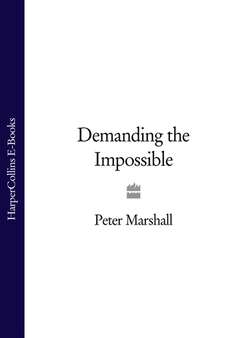Читать книгу Demanding the Impossible - Peter Marshall - Страница 51
John Stuart Mill
ОглавлениеJohn Stuart Mill in his essay On Liberty (1859) insisted that individuality is one of the essential elements of human well-being. To this end, he quoted the German libertarian Wilhelm von Humboldt that ‘the end of man … is the highest and most harmonious development of his powers to a complete and consistent whole’ and that the two requisites for individuality are ‘freedom, and variety of situations’.1 He further acknowledged his debt to the ‘remarkable American’ individualist anarchist Josiah Warren for the use of the phrase ‘the sovereignty of the individual’.2
But while being a great libertarian and individualist, Mill was no democrat. He dreaded the ignorance of the masses and was fearful of the tyranny of the majority which socialism might involve. He seems to have mistaken Bakunin for the whole of the First International, and associated its socialism with general revolutionary destruction. Of the socialists, he was most impressed by Saint-Simon and Charles Fourier who retained a degree of inequality in their systems.3
Nevertheless, Mill was not a complete believer in laissez-faire and he wanted a fairer distribution of wealth. He came very close moreover to the anarchist goal of communal individuality in his famous formula:
The social problem of the future we considered to be, how to unite the greatest individual liberty of action with a common ownership in the raw material of the globe, and equal participation of all in the benefits of combined labour.4
Mill has played an important part in the philosophical and the practical defence of individual and social freedom. He defended liberty on the grounds of utility, truth and individuality. He opposed the tyranny of government, of the majority, and of opinion. In his essay On Liberty, one of the great classics of libertarian thought, he insisted on an unbridled freedom of speech and thought. He did not, like Godwin, think that truth always triumphs over error, but he argued that free enquiry is best in pursuing truth. No one is infallible and can be sure that the opinion they are suppressing is true. Truth is most likely to emerge in the clash of opposing opinions. And only by defending and explaining our views can we have ‘a living apprehension of a truth’.5 Mill stands beside all those anarchists who believe that people should question authority and think for themselves.
Mill insists that ‘The only freedom which deserves the name is that of pursuing our own good in our own way, so long as we do not attempt to deprive others of theirs, or impede their efforts to obtain it.’6 It was on these grounds that he defended the liberty of conscience, of thought and feeling, of tastes and pursuits, of expression, and of association. In personal terms, he defined freedom in a negative way as doing what one desires—‘all restraint, qua restraint, is an evil.’7 He even went further than most anarchists in pointing out the dangers of public opinion and social pressure in trying to make people conform, a tyranny which could be more oppressive than political authority. He celebrated individuality and diversity as good in themselves, and encouraged eccentricity and different ‘experiments of living’.8
Making a distinction between self- and other-regarding actions, Mill argues that ‘self-protection’, either individual or collective, is the only legitimate reason for coercing anyone into doing something he or she does not want to do. People should only be interfered with when they intend definite harm or suffering to others; their own good does not offer sufficient grounds. We all have a right to be left alone: ‘Over himself, over his own body and mind, the individual is sovereign.’9
Mill presents human beings as self-reliant and capable of responding to rational argument On these grounds, he opposed ‘a State which dwarfs its men, in order that they may be more docile instruments in its hands even for beneficial purposes – will find that with small men no great thing can really be accomplished.’10 All this is admirably libertarian.
Although Mill often appears almost anarchistic, ultimately he remains, like Humboldt, in the liberal camp. He advocated women’s suffrage and argued for proportional representation for minority voices. He was opposed to excessive regulation and centralization. He wanted to restrict government to the regulation of contracts and provision of public works. Yet in arguing his case for representative government, he called for plural voting in which the educated would have more votes than the ignorant. Above all, he followed Rousseau in arguing that ‘Despotism is a legitimate mode of government in dealing with barbarians,’ thereby justifying colonial rule.11
It is Mill’s belief in the guiding role of an intellectual elite which prevents him from being regarded as an anarchist. He may have been a great libertarian in his defence of the freedoms of thought, expression and individuality, but he frequently stresses the need for intellectual authority rather than ‘intellectual anarchy’.12 He often pictured the happy society as one in which the people are voluntarily led by an elite of wise guardians. In the long run, the elitist in Mill gets the better of the democrat and the libertarian.
